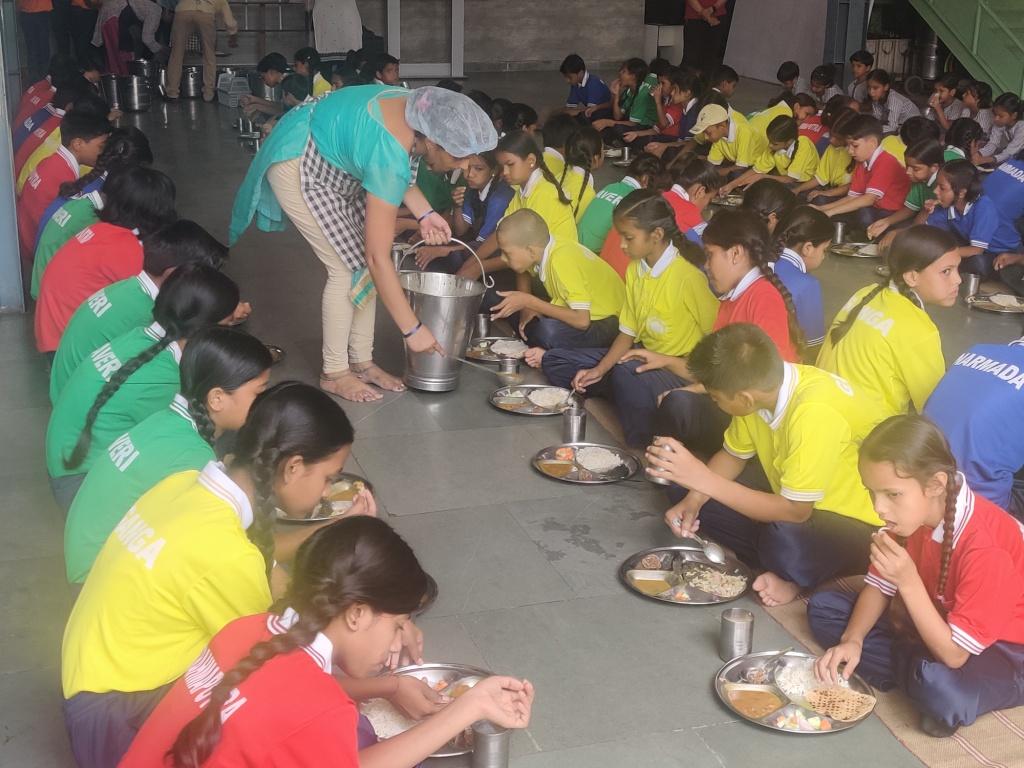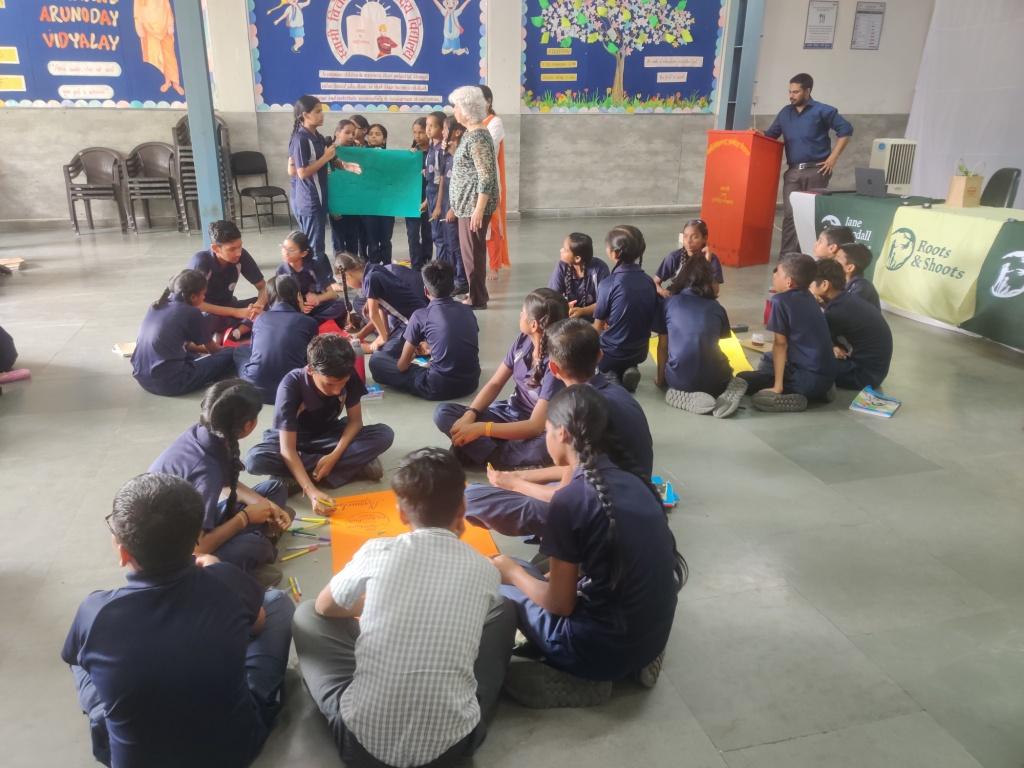Merino Industries Limited is known for its strong commitment to social responsibility. The company's extensive Corporate Social Responsibility (CSR) initiatives prioritize balancing business growth with social good. Guided by Swami Vivekananda's ethos of continuous progress, Merino focuses on supporting marginalized communities and promoting environmental sustainability. Their holistic approach emphasizes creating a sustainable future for all, particularly in the areas of education, healthcare, and environmental efforts.
In this interview with TheCSRUniverse, Mr. Madhusudan Lohia, Director, Merino Industries Ltd, provides insights into the company's multifaceted CSR strategy. He discusses the company's specific strategies for tackling challenges in education, healthcare, and environmental sustainability. The conversation also explores how they foster self-reliance in communities, handle unexpected challenges, while maintaining transparency. Additionally, the interview covers Merino's partnerships, adaptability, and advocacy for social and environmental causes as the company strives for a fair and sustainable future.
Read the full interview below for more insights.
Q&A
Q. Merino Industries is recognized for its commitment to societal welfare through its CSR initiatives. Could you provide insights into the fundamental values underpinning these efforts and how they contribute to the betterment of the communities served? Additionally, how has the company integrated its diverse business interests into its CSR initiatives, particularly in promoting sustainability and societal welfare?
A. Swami Vivekananda's ethos, 'Arise, Awake, and Stop Not Till the Goal is Reached', inspires all Merino initiatives. Seamlessly blending business growth with social responsibility, our CSR endeavors prioritize marginalized communities and environmental stewardship. Our commitment to responsible practices started long before the statutory requirements to allocate part of our profits towards societal and environmental causes. Merino's mission, "Universal Weal through Trade and Industry," highlights our dedication to sustainable wealth generation for stakeholders, respecting nature. Pursuing this mission, we strive to create wealth without harming the environment, aiming for a pristine environment that fosters abundance for all.
 Q. Beyond existing programs, are there any innovative approaches or future plans in education and healthcare that address evolving community needs and create a lasting impact?
Q. Beyond existing programs, are there any innovative approaches or future plans in education and healthcare that address evolving community needs and create a lasting impact?
A. Education is pivotal for citizens' prosperity and well-being, with an enduring impact. In Hapur, our initiatives include a co-educational day-boarding school for marginalized sections and a mid-day meal program for low-income schools. In Kolkata, Yogakshema provides scholarships for academically bright students in the 11th and 12th grades. Addressing health is vital; thus, we partner with the government in Hapur to eliminate TB in 42 villages by 2025. Moreover, our three dispensaries provide free OPD services. Our women's empowerment program promotes gender equality, emphasizing economic autonomy.
Initiatives like the Stitching Centre in Rohad, Haryana, foster female skills, contributing to holistic empowerment.
Q. How do Merino's CSR programs empower communities to identify and solve their own challenges, fostering self-reliance beyond resource provision?
A. Merino's comprehensive CSR initiatives aim to cultivate self-reliance within communities by focusing on education, healthcare, economic empowerment, and environmental sustainability. Our educational programs provide children with knowledge and values, offering them opportunities for future career choices and breaking the cycle of poverty. In healthcare, besides treating TB patients, our regular health camps promote preventive measures. Our stitching centre empowers women economically, and mid-day meal supplies enhance nutrition and school attendance. Furthermore, we engage communities in tree plantation drives to maintain a clean and green environment. These holistic efforts empower communities to identify and address their own challenges effectively.
Q. Can you elaborate on how Merino's technological advancements create a ripple effect, potentially inspiring or enabling communities to adopt more sustainable practices in their daily lives?
A. At Merino, we set an example through innovation and efficiency, encouraging others to follow suit. Embracing holistic sustainability, our Nirmal framework integrates the five elements of nature, i.e., the panch-mahabhootas, reflecting our commitment. Prioritizing operational eco-efficiency, we minimize water and energy intensity, reduce waste, and maximize circular economy principles. Our efforts have resulted in significant reductions in the intensity of its emissions and consumption: GHG emissions intensity by 61%, energy intensity by 58%, and water intensity by 55% (2019–2023). By showcasing economic and social benefits, we inspire others to adopt similar approaches, aiming to reduce environmental impact and foster sustainable practices.
Q. Can you provide specific examples of successful partnerships between Merino and other stakeholders, and how these collaborations have maximized the reach and impact of CSR initiatives?
A. Merino values dynamic collaborations for mutual growth and operational excellence, exemplified by our partnership with Visvesvaraya National Institute of Technology (VNIT, Nagpur) to establish the Merino Innovation Centre. This collaboration has yielded three awarded patents: a rapid biodecomposer for agrowaste, a nutrient-enriching microbial consortium, and dietary fiber extraction from potato peels. Additionally, two more patents are in the pipeline. Together, we address challenges like assessing carbon footprints and transforming waste into valuable products. The Centre, aligned with our Nirmal Program's circular economy principles, fosters pioneering research. These partnerships underscore our commitment to innovation and sustainable development, driving positive change.
Q. Considering the vast educational needs across India, are there any plans to replicate or adapt the Yogakshema Scholarship Program to cater to students in other regions with diverse educational challenges?
A. Absolutely, addressing the significant educational disparities across India is a pressing concern. While we acknowledge the importance of expanding initiatives like Yogakshema to other regions, we recognize that no single entity can meet the country's vast educational needs alone. Instead, we encourage collaboration with companies/organizations in diverse regions to replicate and adapt successful programs. As a company committed to social impact, we're open to exploring such opportunities and look forward to potential partnerships. Ultimately, decisions regarding expansion will be guided by our Board strategic considerations and the potential for meaningful impact in new areas.
 Q. Could you discuss any challenges or lessons learned from past CSR initiatives and how Merino adapts its strategies in response to these experiences?
Q. Could you discuss any challenges or lessons learned from past CSR initiatives and how Merino adapts its strategies in response to these experiences?
A. Challenges are inherent in any developmental endeavor, fostering maturity and resilience. While meticulous planning mitigates many hurdles, unforeseen circumstances, like the COVID pandemic, test our adaptability. During the lockdown, the families of our school students faced starvation. Swift management action provided food aid to support our school families and 1,600 other needy families. Collaboration with the district facilitated essential movements.
Despite technological barriers, teachers transitioned to online instruction, minimizing learning disruptions. Despite adversity, maintaining hope and pursuing collaborative solutions are paramount. Adversity strengthens resolve, and collaborative efforts ensure progress amidst challenges.
Q. How does Merino ensure transparency and accountability in its CSR initiatives, both internally within the organization and externally with stakeholders and the public?
A. At Merino, transparency and accountability are fundamental. Our three-member CSR committee, including an independent director, sets clear objectives. Educational initiatives are managed by Shri Hara Kasturi Memorial Trust, while healthcare programs are overseen by Shri Premchand Lohia Memorial Trust in Hapur and Shri Mankumar Lohia Trust in Kolkata. Stakeholder engagement ensures our initiatives meet genuine community needs. Public disclosure via annual reports, websites, and social media enhances accessibility. Adherence to CSR standards underscores our commitment to ethics. Continuous improvement, driven by feedback, is integral to Merino's culture, reflecting our dedication to positive impact.
Q. What are some emerging social or environmental issues that Merino's CSR strategy might address in the next five years? How does Merino envision its CSR work evolving to contribute to a more just, equitable, and sustainable future for all?
A. In the next five years, Merino aims to enhance its CSR strategy to address emerging social and environmental issues. Committed to achieving net-zero emissions, we're transitioning to 100% renewable energy sources, with 72% already from biomass and solar power. Recognized for our green initiatives, we received the Prithvi Award 2023 and the CII Northern Region Green Practices Award. We are also working towards Zero Liquid Discharge to reduce water pollution. Our educational initiatives target green school certification, fostering environmental consciousness. Merino envisions its CSR evolving towards a more just, equitable, and sustainable future through prioritized environmental stewardship.
Q. How has Merino Industries leveraged its brand and corporate influence to advocate for social and environmental causes beyond its direct CSR initiatives?
A. Merino has made significant contributions to advocating for social and environmental causes, notably through its influence on government policy regarding biomass as a green fuel. Through extensive lobbying efforts with policymakers and stakeholders, we have successfully promoted the consideration of biomass as an environmentally friendly energy source. Additionally, Merino prioritizes collaboration and partnerships as key strategies for driving positive change. Apart from VNIT, we have partnered with Ramajunan College, which is accredited with a grade of "A++" by the National Assessment and Accreditation Council (NAAC). These partnerships extend beyond academia. Such collaborations are a testament to Merino's commitment to societal well-being and a sustainable future for all.




 Q. Beyond existing programs, are there any innovative approaches or future plans in education and healthcare that address evolving community needs and create a lasting impact?
Q. Beyond existing programs, are there any innovative approaches or future plans in education and healthcare that address evolving community needs and create a lasting impact? Q. Could you discuss any challenges or lessons learned from past CSR initiatives and how Merino adapts its strategies in response to these experiences?
Q. Could you discuss any challenges or lessons learned from past CSR initiatives and how Merino adapts its strategies in response to these experiences?












.jpg)



